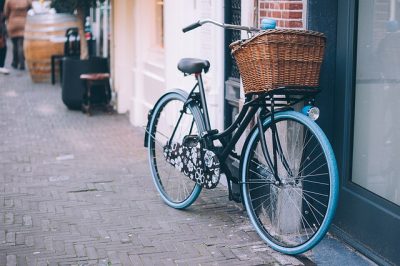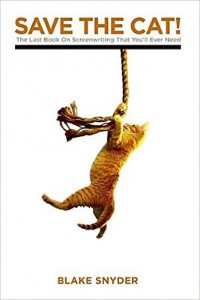 You’ve lost weight.
You’ve lost weight.
Thank you.
Word for word and overheard last weekend. It doesn’t take much imagination to figure out who was speaking and in what context. I was in a dressing room desperately shopping for The Dress That Will Live Forever when a couple of women crowded into the changing cubicle next to me. Within seconds they were discussing their respective appearances; in particular, their weight.
If you think about it, you’ve lost weight is a statement, not a compliment. Yet if you’re like many women living on this blue planet, you’d probably take it as a compliment. A compliment, however, is an act of praise or admiration. In that context, the unsaid part of that exchange is that the woman being spoken to, the one who has apparently lost some weight, is being complimented because she’s more attractive now that she’s thinner (there’s a wealth of politics in that assumption but that’s another blog so I won’t go there).
Given the volume at which the two women were speaking, I can guarantee I wasn’t the only one who heard their exchange. And I’ll bet I wasn’t the only one relieved to have her naked jiggling flesh firmly behind closed cubicle doors where no well-intentioned friend might feel the need to comment on it.
You can never be too rich or too thin. It was the Duchess of Windsor who coined that famous phrase, and it’s an attitude that’s been, for many of us, absorbed into our psyches. Certainly if I wrote a scene with two women in a dressing room and I used those same words, even without context, most readers would jump to the same conclusion and take them as a compliment. They wouldn’t think anything of it.
But if I used the words you’ve lost weight in a scene set in a doctor’s office, or during a visit from a hospice nurse, and if I made my characters come alive in a way that demonstrated they weren’t obsessing about their appearance, hopefully the reader would draw a far different conclusion. A twenty pound weight loss to someone with a heart condition or diabetes could mean health instead of illness. A ten pound weight loss to a pregnant woman could portend trouble ahead. A mere five or even a three pound weight loss to someone who is terminal could mean their life is winding down. The response in a scene like that would probably go from a shallow thank you to a deeper what does that mean? Or even what do we do now?
My mother-in-law died in late March. Having been there while she slowly faded over a period of months, steadily losing weight and unable to swallow at the very end, the words you’ve lost weight came to have a significance beyond appearance to me. Bones need flesh to cover them; without it, we suffer tremendously. Trust me on that. Of course I’m still happier keeping my naked jiggling flesh behind closed cubicle doors. Except now when I catch sight of those jiggling bits in the mirror I’m not so quick to judge. I look at all that padding . . . padding that protects my bones and makes my life comfortable . . . padding that’s a testament to the fact that I carried two brilliant children for nine months (and enjoyed a few too many pieces of carrot cake in the process) and I say a silent thank you. You’ve lost weight means something quite different to me now . . . and that’s not such a bad thing.
 Many years ago, when I was feeling overwhelmed with responsibilities and uncertain about what writing project to tackle next, a good friend asked me a very simple question.
Many years ago, when I was feeling overwhelmed with responsibilities and uncertain about what writing project to tackle next, a good friend asked me a very simple question. Last week’s blog about writing gurus was sparked by a Susan Wiggs talk I attended a few weeks ago. As I mentioned in that post, Wiggs had some questions for the audience. Question one revolved around our writing gurus. Her second question was this: What are your three essential writing tools?
Last week’s blog about writing gurus was sparked by a Susan Wiggs talk I attended a few weeks ago. As I mentioned in that post, Wiggs had some questions for the audience. Question one revolved around our writing gurus. Her second question was this: What are your three essential writing tools? After dinner last week, we had an errand to run in a town 30 minutes away. As we drove in, Mr. Petrol Head was forced to detour because the weekly summer market had taken over the main street. Once our business was done, we headed back that way and spent about 90 minutes wandering the stalls, sampling fresh strawberries, tasting black bean hummus on crackers, and enjoying a few tiny shots of cider. The ocean was at our back and the scent of the sea mingled with the smell of grilled meat and those deadly but delicious market temptations: deep-fried donuts. We chatted to people, patted sweet dogs and listened to a short, impromptu concert.
After dinner last week, we had an errand to run in a town 30 minutes away. As we drove in, Mr. Petrol Head was forced to detour because the weekly summer market had taken over the main street. Once our business was done, we headed back that way and spent about 90 minutes wandering the stalls, sampling fresh strawberries, tasting black bean hummus on crackers, and enjoying a few tiny shots of cider. The ocean was at our back and the scent of the sea mingled with the smell of grilled meat and those deadly but delicious market temptations: deep-fried donuts. We chatted to people, patted sweet dogs and listened to a short, impromptu concert.
 Today is National Walking Day which makes it a perfect time to talk about writing and walking. I’m not talking about the benefits of walking and writing at a treadmill desk, though I love mine and recommend you try one if you get the chance. Instead I’m talking about writers who walk as part of their writing life.
Today is National Walking Day which makes it a perfect time to talk about writing and walking. I’m not talking about the benefits of walking and writing at a treadmill desk, though I love mine and recommend you try one if you get the chance. Instead I’m talking about writers who walk as part of their writing life. If you’re a squeamish, goat- loving vegan this blog may not be for you.
If you’re a squeamish, goat- loving vegan this blog may not be for you.  Some days – some weeks – all you want is fuzzy puppies and cotton candy, or, at the very least, a story that gives you a happy ending.
Some days – some weeks – all you want is fuzzy puppies and cotton candy, or, at the very least, a story that gives you a happy ending. Last week, as part of an inventory for the New Year, I wrote a few lists: things I love and activities I love to do; places that make me happy; my strengths and the things I’m good at; and some accomplishments I’m proud of. I called it my joy inventory and I did it to psych myself up for my annual goal setting session.
Last week, as part of an inventory for the New Year, I wrote a few lists: things I love and activities I love to do; places that make me happy; my strengths and the things I’m good at; and some accomplishments I’m proud of. I called it my joy inventory and I did it to psych myself up for my annual goal setting session.


Comments